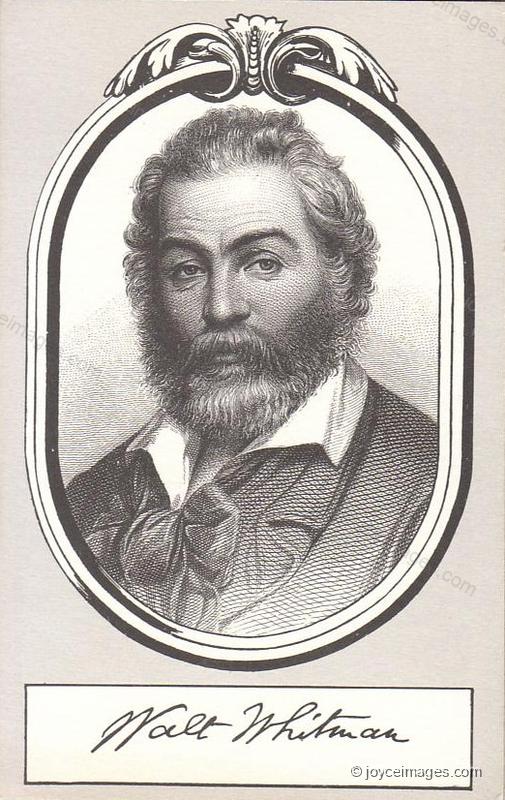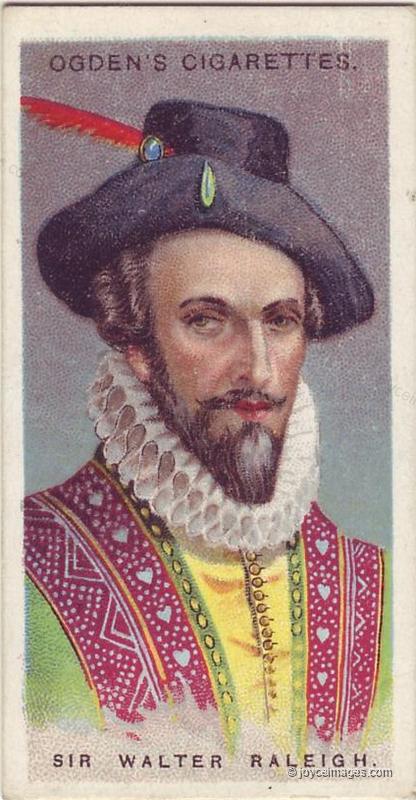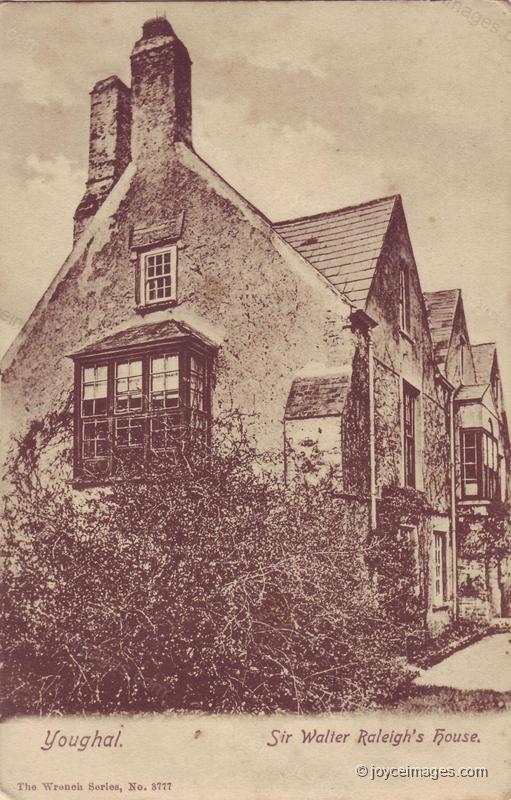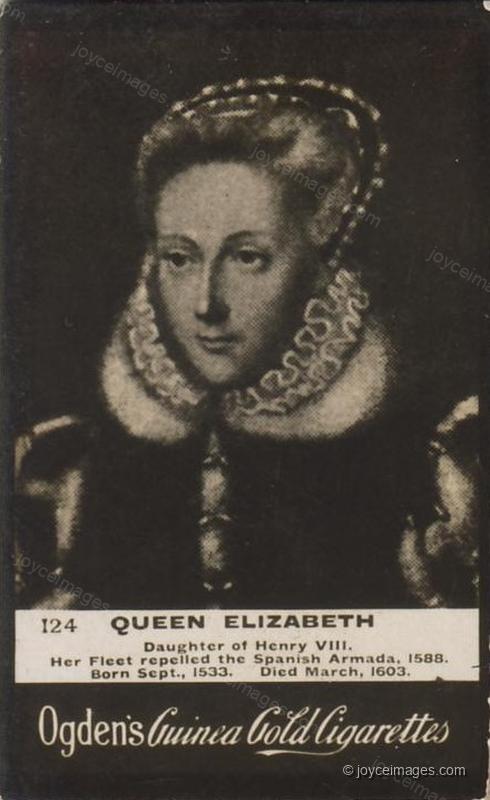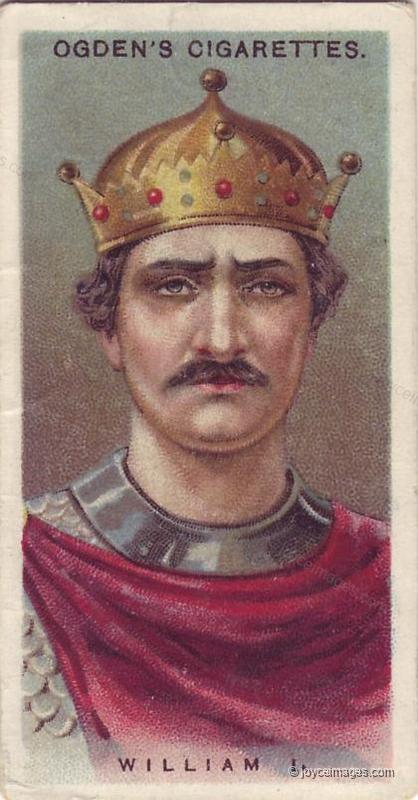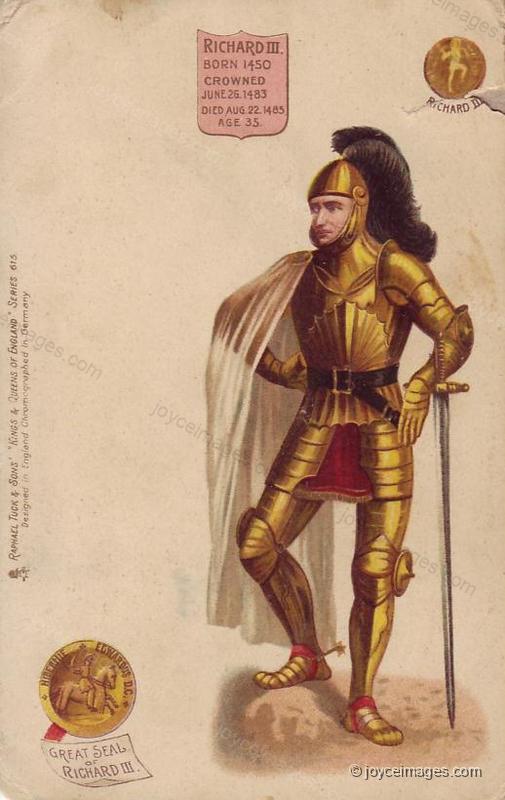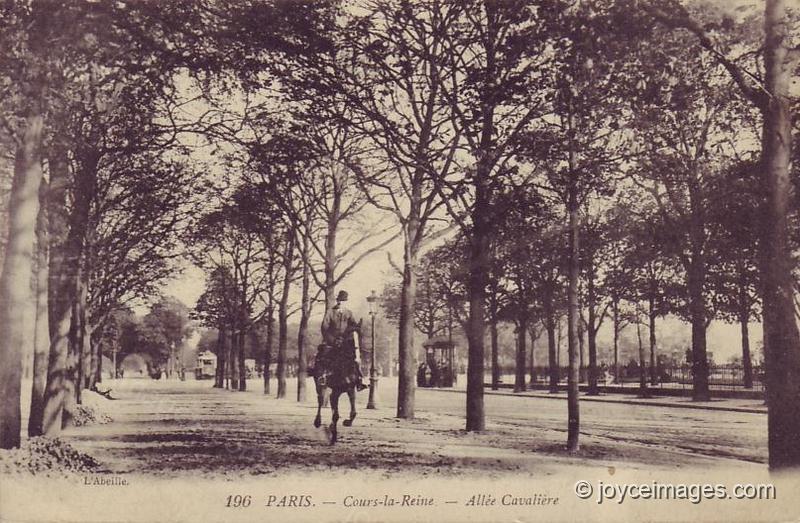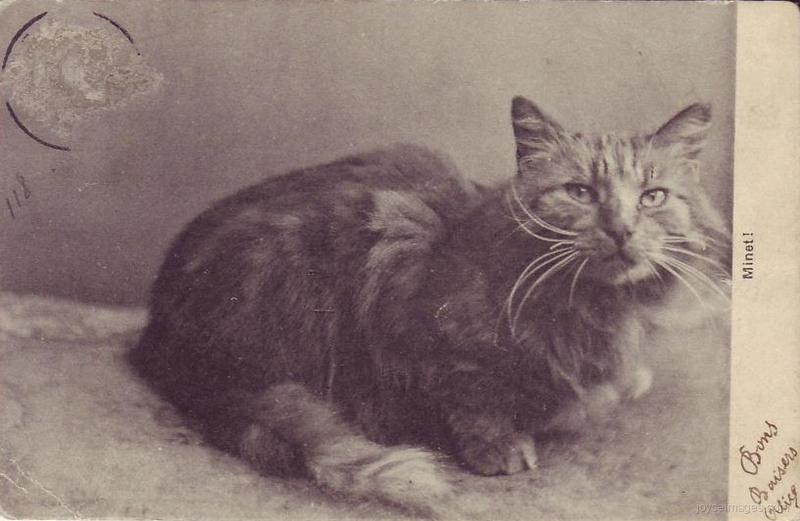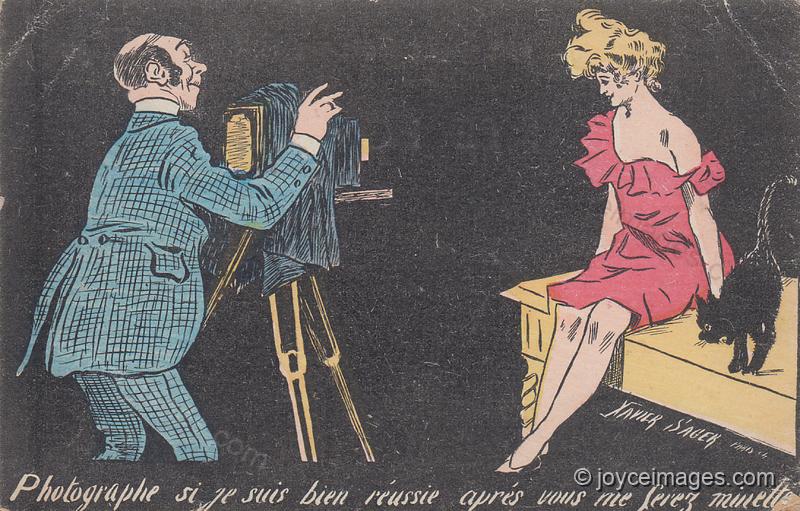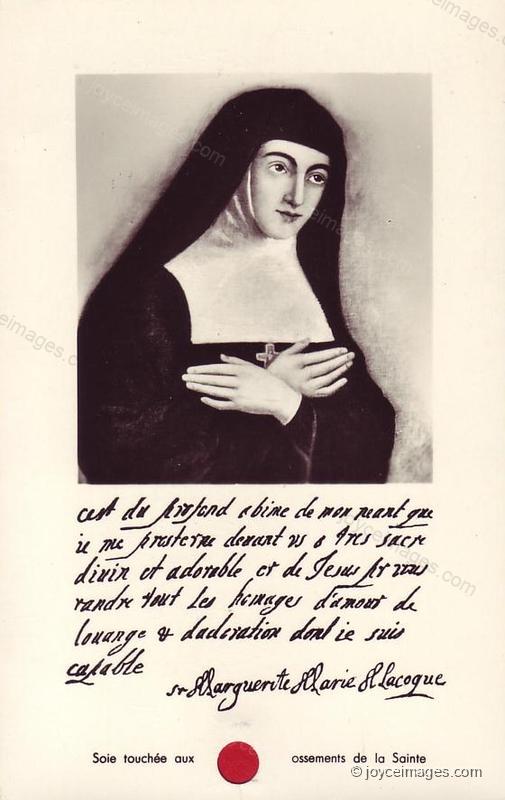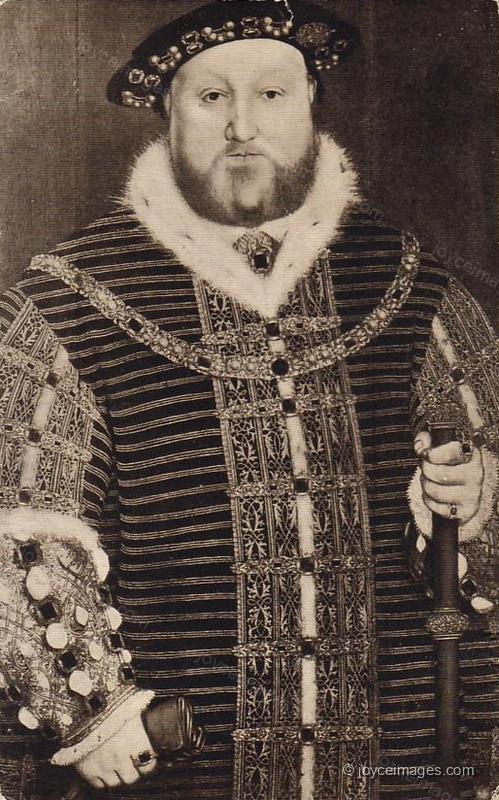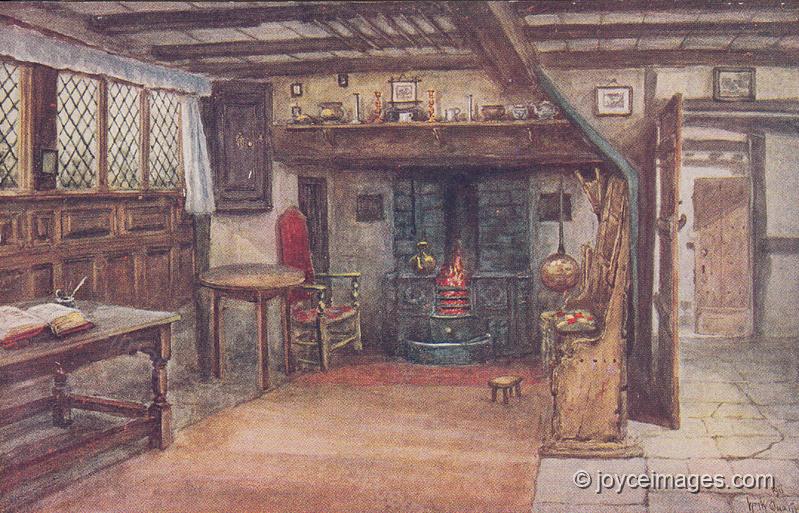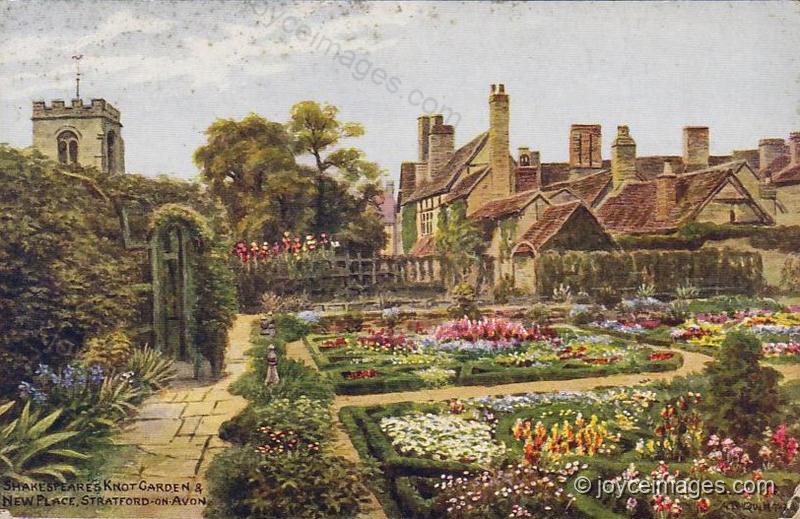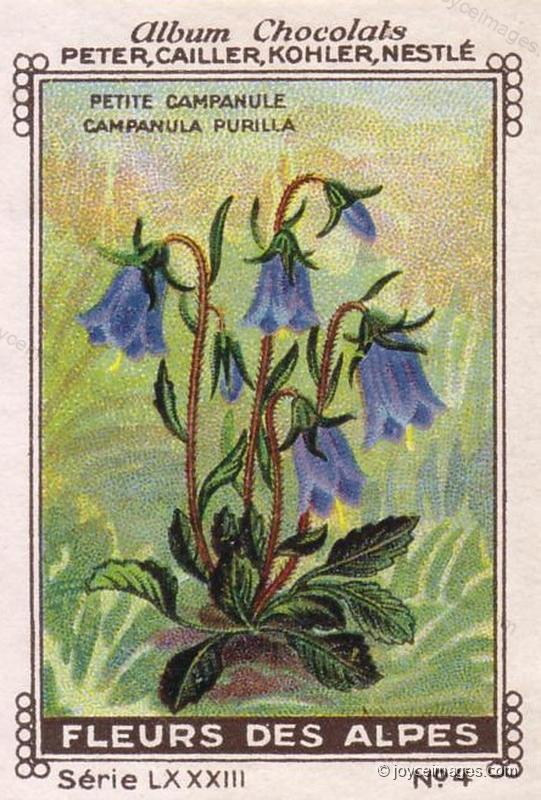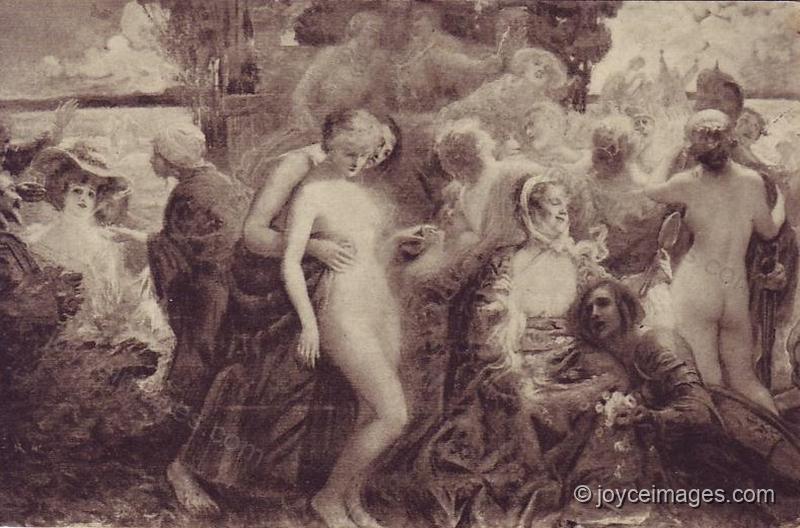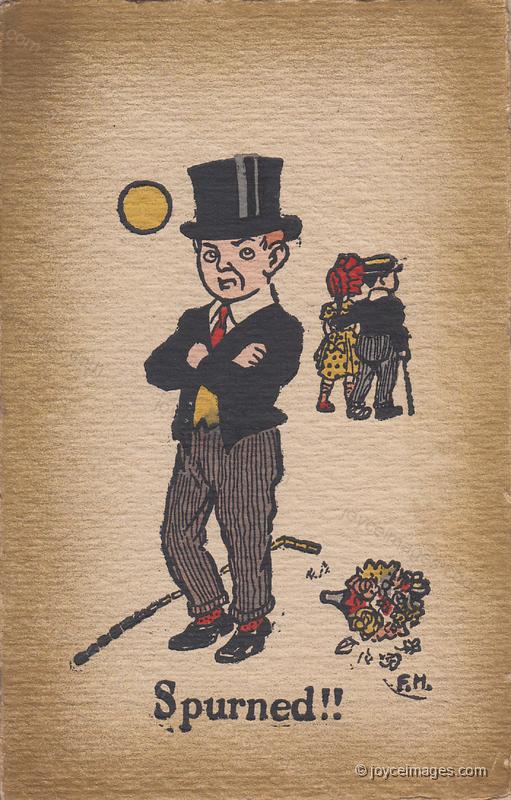"His art, more than the art of feudalism as Walt Whitman called it, is the art of surfeit. Hot herringpies, green mugs of sack, honeysauces, sugar of roses, marchpane, gooseberried pigeons, ringocandies." (U9.625)
"Sir Walter Raleigh, when they arrested him, had half a million francs on his back including a pair of fancy stays." (U9.628)
Sir Walter Raleigh (c. 1552-1618), was an English writer, courtier and explorer, born to a Protestant family in Devon. Little is known of his early life. He spent some time in Ireland (Co. Westmeath), taking part in the suppression of rebellions, later becoming a landlord of lands confiscated from the Irish. He rose rapidly in Queen Elizabeth's favour and was knighted in 1585. He was involved in the early English colonization of the New World in Virginia under a royal patent. In 1594 Raleigh heard of a "golden city" in South America and sailed to find it, publishing an exaggerated account of his experiences that contributed to the legend of El Dorado, and in 1616 led a second in search of El Dorado. This was unsuccessful and the Spanish outpost at San Thomé was ransacked by men under his command. After his return to England he was arrested and after a show trial, was beheaded at the Tower of London.
Sir Walter Raleigh (c. 1552-1618), was an English writer, courtier and explorer, born to a Protestant family in Devon. Little is known of his early life. He spent some time in Ireland (Co. Westmeath), taking part in the suppression of rebellions, later becoming a landlord of lands confiscated from the Irish. He rose rapidly in Queen Elizabeth's favour and was knighted in 1585. He was involved in the early English colonization of the New World in Virginia under a royal patent. In 1594 Raleigh heard of a "golden city" in South America and sailed to find it, publishing an exaggerated account of his experiences that contributed to the legend of El Dorado, and in 1616 led a second in search of El Dorado. This was unsuccessful and the Spanish outpost at San Thomé was ransacked by men under his command. After his return to England he was arrested and after a show trial, was beheaded at the Tower of London.
In Ireland, Raleigh took part in the suppression of the Desmond Rebellion (1579 - 1583) launched by the Fitzgerald dynasty of Desmond in Munster against English rule. At the siege of Smerwick, he oversaw the slaughter of some 700 Italian soldiers (sent by the Pope to help the rebels) after they had surrendered unconditionally. Upon the seizure and distribution of land following the attainders arising from the rebellion, Raleigh received 40,000 acres (160 km²), including the coastal walled towns of Youghal and Lismore. This made him one of the principal landowners in Munster, though he enjoyed limited success in inducing English tenants to settle on his estates. During his 17 years as an Irish landlord, frequently domiciling at Killulagh Castle, Clonmellon (Co. Westmeath), Raleigh made the town of Youghal his occasional home. He was mayor of Youghal 1588 - 89. He is credited with planting the first potatoes in Ireland, though it is more likely that the plant arrived in Ireland through trade with the Spanish. Amongst Raleigh's acquaintances in Munster was Edmund Spenser; they traveled together to London in the 1590s for Spenser to present part of The Faerie Queene to Elizabeth I. This PC shows Sir Raleigh's house in Youghal.
"The gombeen woman Eliza Tudor had underlinen enough to vie with her of Sheba. Twenty years he dallied there between conjugial love and its chaste delights and scortatory love and its foul pleasures. You know Manningham's story of the burgher's wife who bade Dick Burbage to her bed after she had seen him in Richard III and how Shakespeare, overhearing, without more ado about nothing, took the cow by the horns and, when Burbage came knocking at the gate, answered from the capon's blankets:" (U9.630)
"came before Richard III.
And the gay lakin, mistress Fitton, mount and cry O, and his dainty birdsnies, lady Penelope Rich, a clean quality woman is suited for a player, and the punks of the bankside, a penny a time." (U9.637)
And the gay lakin, mistress Fitton, mount and cry O, and his dainty birdsnies, lady Penelope Rich, a clean quality woman is suited for a player, and the punks of the bankside, a penny a time." (U9.637)
"Minette? Tu veux?
—The height of fine society. And sir William Davenant of oxford's mother with her cup of canary for any cockcanary.
Buck Mulligan, his pious eyes upturned, prayed:" (U9.642)
French minet/minette = kittycat, pussycat, pussy. Faire minette = cunnilingus.
—The height of fine society. And sir William Davenant of oxford's mother with her cup of canary for any cockcanary.
Buck Mulligan, his pious eyes upturned, prayed:" (U9.642)
French minet/minette = kittycat, pussycat, pussy. Faire minette = cunnilingus.
here you go...
French loose translation: Photographer if I come out good, you can do Minette for me afterwards
French loose translation: Photographer if I come out good, you can do Minette for me afterwards
"Buck Mulligan, his pious eyes upturned, prayed:
-Blessed Margaret Mary Anycock!" (U9.646)
Mulligan is irreverently referring to Margaret Mary Alacoque (1647 - 1690), a French Nun of the Visitation Order and Apostle of the Devotion to the Sacred Heart of Jesus. Her visions and teachings have had considerable influence on the devotional life of Catholics, especially since the inauguration of the Feast of the Sacred Heart of Jesus on the Roman calendar in 1856. Represented as a nun in the Visitation habit holding a flaming heart; or kneeling before Jesus, who exposes (or hands) his Sacred Heart to her. She is also mentioned in Dubliners. She was canonized by Benedict XV in 1920. This card predates 1920 since it is titled Bienheureuse = Blessed, and not Saint.
-Blessed Margaret Mary Anycock!" (U9.646)
Mulligan is irreverently referring to Margaret Mary Alacoque (1647 - 1690), a French Nun of the Visitation Order and Apostle of the Devotion to the Sacred Heart of Jesus. Her visions and teachings have had considerable influence on the devotional life of Catholics, especially since the inauguration of the Feast of the Sacred Heart of Jesus on the Roman calendar in 1856. Represented as a nun in the Visitation habit holding a flaming heart; or kneeling before Jesus, who exposes (or hands) his Sacred Heart to her. She is also mentioned in Dubliners. She was canonized by Benedict XV in 1920. This card predates 1920 since it is titled Bienheureuse = Blessed, and not Saint.
"- And Harry of six wives' daughter. And other lady friends from neighbour seats, as Lawn Tennyson, gentleman poet, sings." (U9.647)
"But all those twenty years what do you suppose poor Penelope in Stratford was doing behind the diamond panes?" (U9.648)
Notice the diamond window panes in Anne's cottage :)
Notice the diamond window panes in Anne's cottage :)
"Do and do. Thing done. In a rosery of Fetter Lane of Gerard, herbalist, he walks, greyedauburn." (U9.651)
"(One life is all. One body. Do. But do. Afar, in a reek of lust and squalor, hands are laid on whiteness." (U9.653)
"Buck Mulligan rapped John Eglinton's desk sharply.
— Whom do you suspect? he challenged.
— Say that he is the spurned lover in the sonnets. Once spurned twice spurned. But the court wanton spurned him for a lord, his dearmylove.
Love that dare not speak its name.
— As an Englishman, you mean, John sturdy Eglinton put in, he loved a lord.
Old wall where sudden lizards flash." (U9.655)
— Whom do you suspect? he challenged.
— Say that he is the spurned lover in the sonnets. Once spurned twice spurned. But the court wanton spurned him for a lord, his dearmylove.
Love that dare not speak its name.
— As an Englishman, you mean, John sturdy Eglinton put in, he loved a lord.
Old wall where sudden lizards flash." (U9.655)
